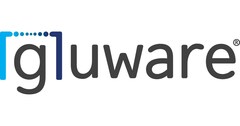Titanium Sponsors
Inquest

Platinum Sponsors
Leonardo DRS

Gold Sponsors
Modern Technology Solutions, Inc.

University of Dayton
Department of
Computer Science

Gluware

Social Media
Our LinkedIn Group: OISF at LinkedIn
OISF on YouTube: OISF on YouTube
Tweets by @oisf
Meeting Agenda - February 10th, 2022
10th February 2022Location has changed
The in-person portion will be hosted at the MTSI office in Beavercreek (4141 Colonel Glenn Hwy #202, Beavercreek, OH 45431).
Registration
The monthly meeting will be held both in-person and online via Google Meet.
Pre-registration via Eventbrite is encouraged to help plan for food and drink (as well as for keeping within capacity limitations).
(You're still welcome to register at the door.)
When you register for the conference, you will be asked if you would like a CPE certificate to support certification requirements.
6:30pm (In-Person):
Food and drinks served, doors open.
6:50pm (Online via Google Meet):
On-line part of meeting opens for participants to join.
7:00pm (Both)
Introduction
A brief overview of the Ohio Information Security Forum.
When Red Herrings Are the Answer: Data Engineering & Data Science for Proactive Cyber Event Detection
By: Jeff Archer, Sr. Staff Cybersecurity Researcher (GE Aviation)
Abstract
Threat hunting, machine learning, artificial intelligence: Aside from being taglines on every cyber security vendor's product sheet today, these are legitimate areas of research and strategy at the forefront of cyber security in both the private industry and academia.
Traditional, reactive detection methods continue to provide value in quick and standardized sharing of signatures and indicators of compromise, but more and more organizations are looking to augment this strategy with behavioral- or heuristic-based detection, and they want it done today...until they realize what it entails.
At the core of all of these methods is data, and lots of it. Proactive detection of cyber security events relies on using data engineering and data science to provide security analysts the information they need to test hunt hypotheses and detect anomalies in their environment, and making it as easy as possible to do so.
Jeff Archer will speak to GE Aviation's latest effort in wrangling the telemetry available to create new, proactive detection measures using a data engineering framework called Magnus. Along the way, he will share lessons learned from the project and its future role in allowing for the testing of data science- and machine learning-driven detection.